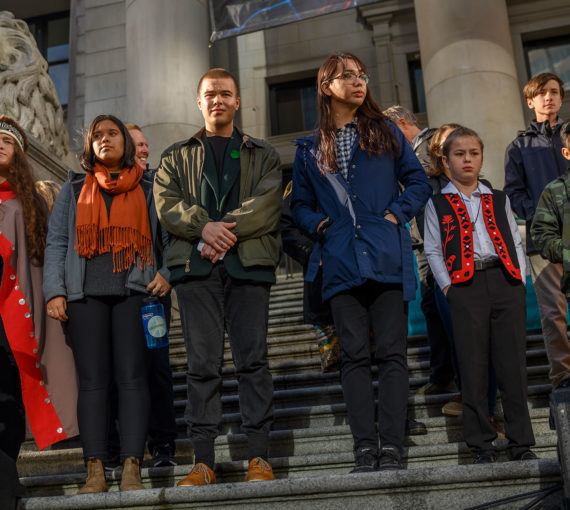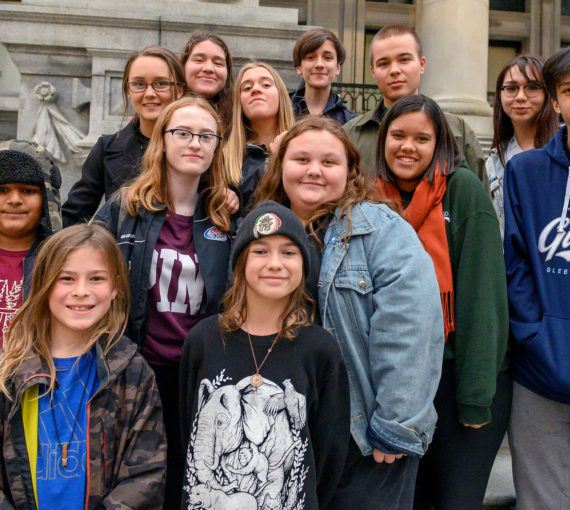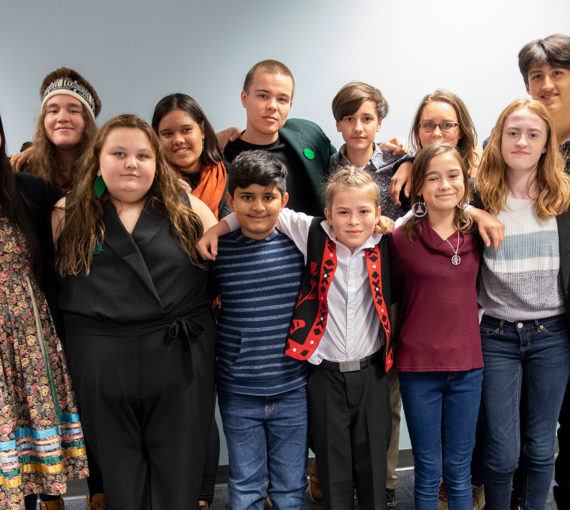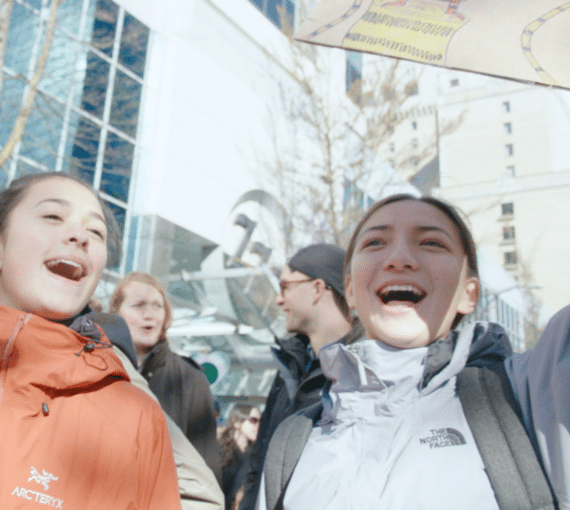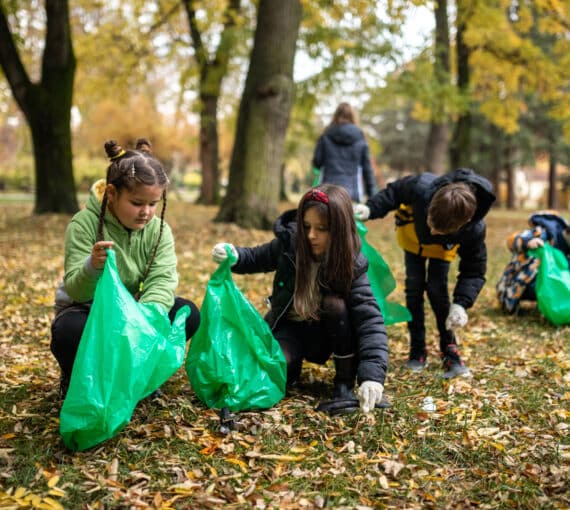Youth go to court for climate justice
Fourteen young people. Seven provinces and a territory.
One powerful message to the federal government: Stop violating charter rights by perpetuating dangerous climate change and develop an adequate, science-based climate plan now.
The case — La Rose et al. vs. His Majesty the King (formerly, Her Majesty the Queen) — was filed in Vancouver on October 29, 2019. The case argues these youth are already being harmed by climate change and the federal government is violating their rights to life, liberty and security of the person under Section 7 of the Canadian Charter of Rights and Freedoms. They also claim a violation of Section 15, which guarantees equality, on the grounds that youth are disproportionately harmed by the accelerating impacts of the climate emergency.
This is the only lawsuit in Canada brought by young people from multiple provinces and a territory challenging the federal government’s systemic role in causing climate change. Unlike provincial cases, La Rose seeks federal accountability, calling on the court to uphold charter rights and recognize the government’s obligation under the public trust doctrine.
If the case is successful, the Federal Court of Canada will order government to develop and implement a climate recovery plan consistent with what scientists say is needed to stabilize the climate system, including transitioning Canada away from fossil fuel reliance in ways that are credible and based on the best available science.
The David Suzuki Foundation served as the lead Canadian environmental non-governmental organizational partner from 2019 to 2024. For case updates and more information, visit Our Children’s Trust.
I’m joining the La Rose case because my generation and those to come are entitled to a planet that can sustain livelihoods, but also an environment that is conducive to harmony, peace and integrity. Our leaders must be held accountable for the systemic violation of the rights of youth that is occurring today, because there is still time to secure a livable future.
Kira (British Columbia)
A key step in the global youth climate movement
La Rose et al. vs. His Majesty the King is the first federal youth-led climate lawsuit in Canada, but it’s part of a growing wave of legal actions worldwide demanding that governments confront the climate crisis and protect the wellbeing of people now and into the future.
These 14 young plaintiffs are part of a global movement of young people holding their governments accountable for reducing greenhouse gas emissions and safeguarding their constitutional rights.
In Ontario, the youth-led case Mathur et al. vs. His Majesty in Right of Ontario echoes this call for justice at the provincial level. Together, these legal challenges reflect a rising movement of collective action – with young people at the forefront – pushing for science-based climate policies and government accountability.
Meet the plaintiffs
Ranging in age from 10 to 19 (at time of case launch), the plaintiffs reflect the diversity and determination of a generation demanding climate justice.
All have suffered individualized harms from the effects of the climate crisis and have been working to advance climate solutions in their own communities.
Why sue the government?
The leading international body on climate science – the Intergovernmental Panel on Climate Change – has given the world until 2030 to reduce global emissions by half to avoid irreversible, catastrophic climate change impacts. In Canada, climate change effects are already being felt in the form of heat waves, sea level rise, atmospheric rivers, glacier retreat, melting permafrost, wildfires and other extreme weather–related events.
For over half a century, the federal government has known that climate change and fossil fuel use threaten the life and personal security of people in Canada. Yet it continues to take actions that harm today’s children and those to come. Canada’s government is actively contributing to the climate crisis by continuing to support and promote fossil fuels.
From the media centre
Read past statements released to the media related to La Rose et al. vs. His Majesty the King.
